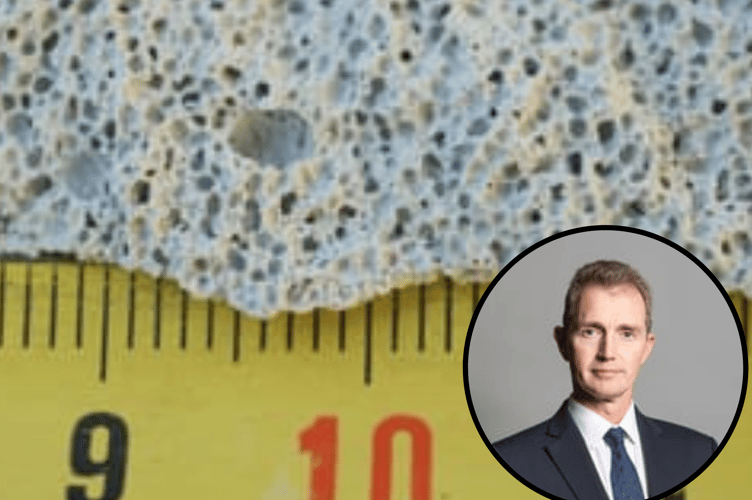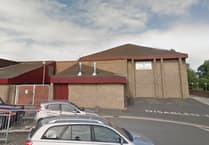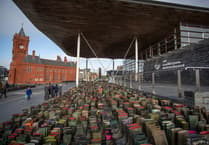Monmouthshire County Council is facing calls for transparency over the possible use of aerated concrete in its buildings after two schools in Wales were forced to shut classrooms just before the new term.
RAAC, reinforced autoclaved aerated concrete, is a light concrete with visible “bubbles” mainly used in roofs but has a limited shelf life. According to the Health and Safety Executive RAAC is now “life-expired” and “liable to collapse with little or no notice.”
Sections of Nevill Hall Hospital were forced to close last month following the identification of RAAC but schools in Monmouthshire are yet to be affected.
Work is continuing to assess the scale of the issue across Wales, with the results expected in two weeks. It comes as more than 100 schools, colleges and nurseries in England were ordered to close affected buildings by the UK Government last week.
Monmouth MP David Davies has written to Cllr Martyn Groucutt, Cabinet Member for Education, to find out if the Welsh Government has ever formally asked MCC to undertake an inspection of the school estate specifically to identify RAAC.
In his letter, Mr Davies said: “I am sure you will be aware that in March 2022, the UK Government set all responsible bodies a questionnaire to identify RAAC on school estates.
“As a result of this, we now know there are numerous school buildings in England which require urgent work to be carried out to remain safe.
“Several constituents have voiced concerns about the possibility of similar issues in Welsh schools .
“I will be very grateful if you could tell me whether the Welsh Government has ever formally asked Monmouthshire County Council to undertake inspection of the school estate specifically to identify RAAC.
“If so, I would appreciate confirmation of when this happened and whether RAAC has been found in any schools in Monmouthshire.”
Mr Davies said he would have expected the council to issue a public statement “to reassure parents, staff and pupils.”
Following the closure of parts of Nevill Hall Hospital, A spokesperson from the Aneurin Bevan University Health Board assured: “We have undertaken thorough assessments on the prevalence of RAAC, as a result of an issue being identified with RAAC at a range of NHS and the public sector buildings across the UK, including several properties in Wales - one being Nevill Hall Hospital in Abergavenny.
“We would like to reassure our patients, staff and communities that our position is different from the one in Withybush Hospital (Hywel Dad University Health Board), which has recently been publicised, Currently, the scale of the problem at Withybush is having a significant impact on the delivery of services on the site, and, to date, three wards have been closed at the hospital. This has resulted in patients being transferred to other hospitals in West Wales, and the reason for Hywel Dda University Health Board calling a major incident.
“Thankfully we are not in that position- while we have had to close four offices, a small section of the restaurant, and the Chapel, no clinical patient areas have been affected at this time.
“We continue to conduct regular inspections to ensure the site remains safe and to ascertain the extent and financial impact of this problem, and have undertaken this temporary remedial works in the meantime. As this work progresses, the Health Board, alongside expert structural engineers, NHS Wales Estates, and the Welsh Government, will consider the full extent of the work needed at the hospital.
“We will keep our patients, staff and communities, updated with the result of this ongoing work.”
A Monmouthshire County Council spokesperson said: “Monmouthshire County Council is working with the Welsh Government to understand the risk of RAAC in schools and other local authority buildings.
“Initial reviews have been undertaken by specialist engineers and if further investigations are required, this will be undertaken. We will continue to be guided by the experts in this field.”




